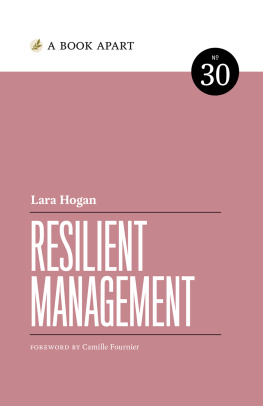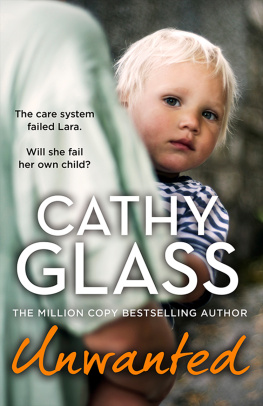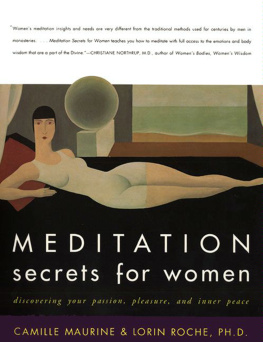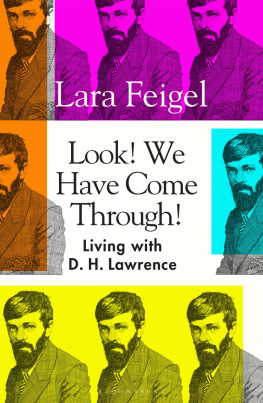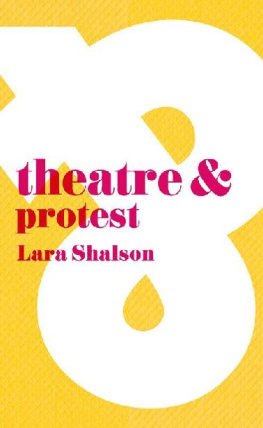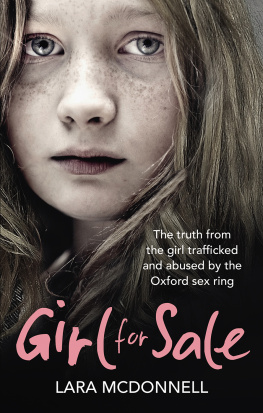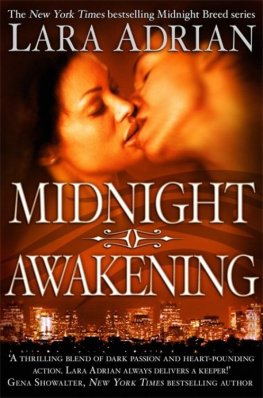Streetwalking
Critical Caribbean Studies
Series Editors: Yolanda Martnez-San Miguel, Carter Mathes, and Kathleen Lpez
Editorial Board: Carlos U. Decena, Rutgers University; Alex Dupuy, Wesleyan University; Aisha Khan, New York University; April J. Mayes, Pomona College; Patricia Mohammed, University of West Indies; Martin Munro, Florida State University; F. Nick Nesbitt, Princeton University; Michelle Stephens, Rutgers University; Deborah Thomas, University of Pennsylvania; Lanny Thompson, University of Puerto Rico
Focused particularly in the twentieth and twenty-first centuries, although attentive to the context of earlier eras, this series encourages interdisciplinary approaches and methods and is open to scholarship in a variety of areas, including anthropology, cultural studies, diaspora and transnational studies, environmental studies, gender and sexuality studies, history, and sociology. The series pays particular attention to the four main research clusters of Critical Caribbean Studies at Rutgers University, where the coeditors serve as members of the executive board: Caribbean Critical Studies Theory and the Disciplines; Archipelagic Studies and Creolization; Caribbean Aesthetics, Poetics, and Politics; and Caribbean Colonialities.
Giselle Anatol, The Things That Fly in the Night: Female Vampires in Literature of the Circum-Caribbean and African Diaspora
Ala Reyes-Santos, Our Caribbean Kin: Race and Nation in the Neoliberal Antilles
Milagros Ricourt, The Dominican Racial Imaginary: Surveying the Landscape of Race and Nation in Hispaniola
Katherine A. Zien, Sovereign Acts: Performing Race, Space, and Belonging in Panama and the Canal Zone
Frances R. Botkin, Thieving Three-Fingered Jack: Transatlantic Tales of a Jamaican Outlaw, 17802015
Melissa A. Johnson, Becoming Creole: Nature and Race in Belize
Carlos Garrido Castellano, Beyond Representation in Contemporary Caribbean Art: Space, Politics, and the Public Sphere
Njelle W. Hamilton, Phonographic Memories: Popular Music and the Contemporary Caribbean Novel
Lia T. Bascomb, In Plenty and in Time of Need: Popular Culture and the Remapping of Barbadian Identity
Aliyah Khan, Far from Mecca: Globalizing the Muslim Caribbean
Rafael Ocasio, Race and Nation in Puerto Rican Folklore: Franz Boas and John Alden Mason in Porto Rico
Anke Birkenmaier, ed., Caribbean Migrations: The Legacies of Colonialism
Ana-Maurine Lara, Streetwalking: LGBTQ Lives and Protest in the Dominican Republic
Streetwalking
LGBTQ Lives and Protest in the Dominican Republic
Ana-Maurine Lara
Rutgers University Press
New Brunswick, Camden, and Newark, New Jersey, and London
Library of Congress Cataloging-in-Publication Data
Names: Lara, Ana-Maurne, author.
Title: Streetwalking : LGBTQ lives and protest in the Dominican Republic / Ana-Maurine Lara.
Description: New Brunswick : Rutgers University Press, [2020] | Series: Critical Caribbean studies | Includes bibliographical references and index.
Identifiers: LCCN 2020012087 | ISBN 9781978816497 (paperback) | ISBN 9781978816503 (hardcover) | ISBN 9781978816510 (epub) | ISBN 9781978816527 (mobi) | ISBN 9781978816534 (pdf)
Subjects: LCSH: Sexual minoritiesDominican RepublicSocial conditions. | Gay rightsDominican Republic. | Dominican RepublicSocial conditions.
Classification: LCC HQ73.3.D65 L374 2020 | DDC 306.76097293dc23
LC record available at https://lccn.loc.gov/2020012087
A British Cataloging-in-Publication record for this book is available from the British Library.
Copyright 2021 by Ana-Maurine Lara
All rights reserved
No part of this book may be reproduced or utilized in any form or by any means, electronic or mechanical, or by any information storage and retrieval system, without written permission from the publisher. Please contact Rutgers University Press, 106 Somerset Street, New Brunswick, NJ 08901. The only exception to this prohibition is fair use as defined by U.S. copyright law.
www.rutgersuniversitypress.org
Este libro lo dedico a Paloma Sody, Antonio E. de Moya, y a tod*s l*s activistas LGBTQ en Santo Domingo quienescon valenta, pasin y amorhan puesto y continan a poner sus cuerpos, sus corazones, sus mentes y sus espritus en el centro de la lucha por las vidas y los derechos de tod*s y para un mundo libre de opresin.
Contents
Where the Locas Are
In June 2010, I arrived for what would be the first of several consecutive research visits to the Dominican Republic (D.R.). I was born there. I had lived there before as an adult. I had conducted ethnographic research there on many occasions, but never on or about gay people. The first time I did ethnographic research in the D.R. was in 1995, when I met with the first of what would come to be several dozens of rural, urban, and plantation servidores (tradition keepers) and spiritual leaders in the southern provinces and throughout the capital city of Santo Domingo. My research was focused on racial ideologies and resistance within rural Afro-Dominican and plantation communities (Lara 2005).
The first time I had lived in the D.R. as a lesbian (in 1995), I had managed to find a few other gay women, but just by chance. It happened at a music concert in the Ruinas de San Franciscoin the colonial city (La Zona Colonial)and I noticed two women holding each other (Lara 2009). Once I got past the (joyful) shock of seeing them, I went up and introduced myself. They drove me home that night. We laughed in the night breeze blowing up from the sea as we drove down the seaside walkway, the malecn. But after I stepped out of the pickup truck, I didnt see any of these women for a long time. Some of them I have never seen again.
By 2003the next time I lived in the D.R. as an adultI had met other Dominican lesbians and gay men in the diaspora through LLEG, the national Latino Lesbian and Gay Organization. There, I had learned about GALDE (Gay and Lesbian Dominican Empowerment Organization) in New York City and met Luisa Rondn Lassen, Francisco Lazala Mejia, Yoseli Castillo, and Dulce Reyes Bonilla. In the D.R., I heard about and sought to meet Jacqueline Jimnez Polanco. She was a very powerful influence. While I was in the D.R. that year, she invited me to join her and a group of young women at a monthly gathering in Gazcue called Divagaciones bajo la luna. and queer/qur (LGBTQ) activists. I was part of and responsive to international Latino LGBTQ networks (through the LLEG and PaFuera, PaLante conferences) and had just stepped off the International Gay and Lesbian Human Rights Commission board of directors, where I had met LGBTQ activists from all across the globe. Living in the D.R. in 2003 and 2004, I revisited many of the communities I had come to know early in my research life. Our relationships had transformed into ones that followed a more usual script. I lived afuera (in diaspora). I brought gifts from afuera. I continued to ask about the conditions of peoples lives, to attend ceremonies and celebrations, to follow up on the children and elders who were born and who died. Spending additional time on the sugar cane plantations in the south and the east, I spoke with those Dominicans and Dominicans of Haitian descent who remained following the restructuring of the sugar industry in the late 1990s. I found people moving between communities and some who had disappeared; they had been deported to Haiti, were victims of other kinds of mysterious extrajudicial violences, or had simply died. Many of the folks on the plantations were also talking to me about the impact of their current statelessness, something that would later evolve into state-legislated denationalization (El Caribe 2013). While in the D.R., I wrote a novel and continued my ethnographic research. And then in late 2004 (after Jean-Bertrand Aristides removal in Haiti), unable to economically sustain a life as an out lesbian with antiracist politics in what was a politically and economically unstable context, I returned to the U.S.




